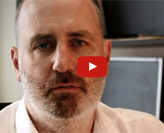Drug trial to reduce scarring after heart scare
Hunter heart attack survivors will be among the first in the world to trial a new drug designed to reduce the tissue scarring commonly associated with heart weakening and potential failure.

Hunter heart attack survivors will be among the first in the world to trial a new drug designed to reduce the tissue scarring commonly associated with heart weakening and potential failure.
John Hunter Hospital cardiologist Professor Andrew Boyle, co-leader of HMRI's Cardiovascular Research Program, has been named principal investigator for the multicentre, international Phase II clinical trial of a new compound dubbed NP202.
Developed by Melbourne-based pharmaceutical company Armaron Bio, it will be administered to patients in the days immediately following their heart attack.
"After a heart attack, damaged muscle is replaced by scar tissue," Professor Boyle explained. "A substantial number of people then suffer weakening of the heart, which leaves them debilitated and more likely to be re-admitted to hospital.
"This compound will hopefully reduce the build-up of scarring and allow the heart to pump more effectively. There's some interesting laboratory data suggesting that NP202 actively treats the cause of heart failure but this will be the first trial in human patients."
Each year, around 54,000 Australians suffer a heart attack. The placebo-controlled trial will enrol 120 patients across around 15 sites in Australia, New Zealand and the US.
The primary endpoint of the trial is the change from baseline in the heart's size and function, as assessed by an MRI, between treatment groups. Results are expected in mid-2017.
* HMRI is a partnership between Hunter New England Health, the University of Newcastle and the Community.
The University of Newcastle acknowledges the traditional custodians of the lands within our footprint areas: Awabakal, Darkinjung, Biripai, Worimi, Wonnarua, and Eora Nations. We also pay respect to the wisdom of our Elders past and present.